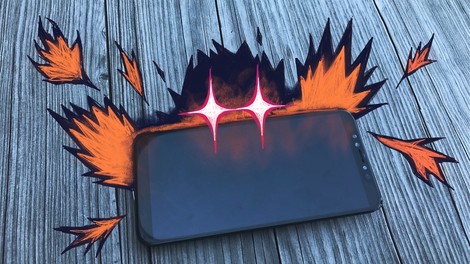Your podcast discovery platform
Curious minds select the most fascinating podcasts from around the world. Discover hand-piqd audio recommendations on your favorite topics.

piqer for: Global finds Technology and society Globalization and politics
Elvia Wilk is a writer and editor living in New York and Berlin, covering art, architecture, urbanism, and technology. She contributes to publications like Frieze, Artforum, e-flux, die Zeit, the Architectural Review, and Metropolis. She's currently a contributing editor at e-flux Journal and Rhizome.
Should You Buy A Counterfeit iPhone?
Jason Koebler and Lorenzo Franchesini-Bicchierai got their hands on a counterfeit, $100 iPhone sourced in Shenzhen, China. The tech reporters were fascinated by what looked like a relatively good copy of a real iPhone, and set about analyzing the differences between this bizarre conglomeration of technology and what you’d find in an Apple store.
After using the phone, consulting a security firm, and eventually picking apart its insides, what they found was essentially an android device masquerading as an Apple product—albeit surprisingly convincingly.
Despite its functionality, the copy has some absurd glitches and quirks: the facial recognition scanner that unlocks the phone seems to work with just about any face; the “Podcasts” app leads you to YouTube; voice requests to “Siri” are passed on to a “Chinese voice command library called iFlyTek.” Only a single screw seems to be holding down the hardware inside the phone—the components are mainly sealed together, making disassembly of any kind impossible.
But most problematic of all: there’s virtually no security system in place. “If it isn’t outright malicious its overall security is pretty much non-existent,” said a security researcher, which leaves users vulnerable to all kinds of hacking.
Given all these drawbacks, this might not be the fake iPhone for you, but maybe in the future something better will come along at the same price point—a tenth of what an iPhone costs.
Stay up to date – with a newsletter from your channel on Technology and society.
